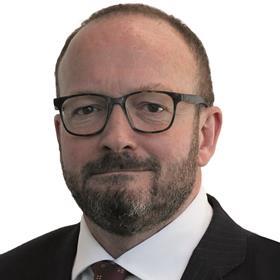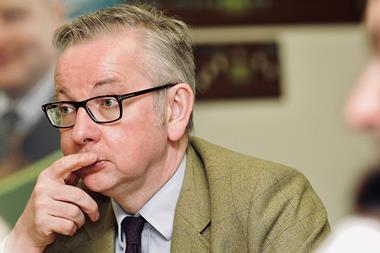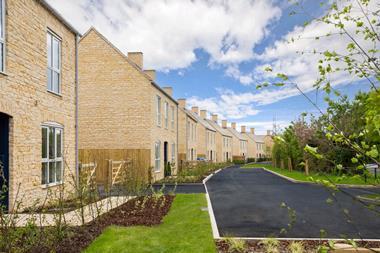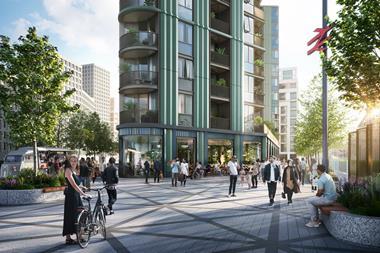Was rehabilitated Levelling-up secretary Michael Gove right in one of his past pronouncements, that “people have had enough of ‘experts’ saying they know what is best and getting it consistently wrong”? Quite possibly, especially when it comes to housing.

Note the inverted commas. Of course, we can’t do without experts – most of Property Week’s readers fit that bill. No, Gove – speaking in 2016 as justice secretary, one of his half dozen or so heavy-hitting government posts – was using the term in ‘air quotes’. In much the same way as when Margaret Thatcher was widely reported as saying “there is no such thing as society”. What she actually said (answering a leading question in Woman’s Own in 1987) was: “Who is [imaginary air quotes] society? There is no such thing! There are individual men and women and there are families… It is our duty to look after ourselves and then also to help look after our neighbour and life is a reciprocal business.”
Generations of Guardian writers and readers have failed to acknowledge the distinction.
There is one subject that most people are ‘experts’ on: house prices. Judging from media headlines, there is near-total unanimity among the nation’s gurus that they are sliding into a headlong crash. But the more sophisticated the financial and economic analysis they pump out, the further they seem to diverge from the remarkably basic drivers of demand and supply. Or the more elemental impulses of fear and greed.
Most would-be buyers don’t base their decisions on Bloomberg screens or Excel spreadsheets. If that sounds patronising, I’m a case in point: when I bought my first flat, as a junior trade journalist, I didn’t have a clue about swap rates or yield curves. I didn’t give a second thought to the rate I was charged; what I did fear was ‘missing the boat’ as prices rose and pulled my horns in for the first few years.
Sales rate
Barratt CEO David Thomas put it succinctly last month. Following the 12 October trading update from Britain’s largest housebuilder, he argued that rising interest rates “per se” were not the main cause of a 35% fall in its private sales rate (although he conceded that the sudden change had been disruptive).
The main reasons buyers were staying away were more visceral: “The primary drivers that stop transactions are, one, where people perceive house prices are going to fall. It is not what we have seen to date, but I can understand [their reticence]. The second is concern about job losses.”
Virtual viewings to its website, Rightmove and so on “have been off the scale”, but they weren’t converting to actual visits to real sites.
However, would-be vendors don’t need to sell: forced selling has been the most powerful trigger of full-blown price crashes. Turning to Thomas’s second cause, mass unemployment might be seen to spark this. But the rate is at a near-50-year low of 3.5% and there are 1.2 million vacancies.
Even if job losses were to spiral, there is little risk of banks pulling in thousands of loans. According to Zoopla, only 4% of buyers have loan-to-value (LTV) levels of 90% or more; 30% are cash buyers and 18% have taken on mortgages with LTVs below 50%. Banks are far better capitalised now than in the downturns of the late 1980s or 2000s – one reason, along with pressure from government, that few owner-occupiers will be turfed out.
The threat of negative equity is almost non-existent, according to Zoopla. If prices were to fall by 10%, a mere 401 homes would be worth less than their mortgages; a 15% decline would push this to 13,707 – barely 1% of annual transactions.
If anyone were to fall into this category, it would be post-pandemic buyers. Prices had ground to a near standstill in 2019 prior to the scourge of Covid. (I recall many ‘experts’ predicting impending Biblical pestilence.)
But prices have risen by 25% since then. The main reason was the stampede to buy during the stamp duty holiday. And whose idea was that? The ‘expert’ who last month took the keys to his new home: 10 Downing Street.
Alastair Stewart is an equities analyst and consultant






























1 Readers' comment